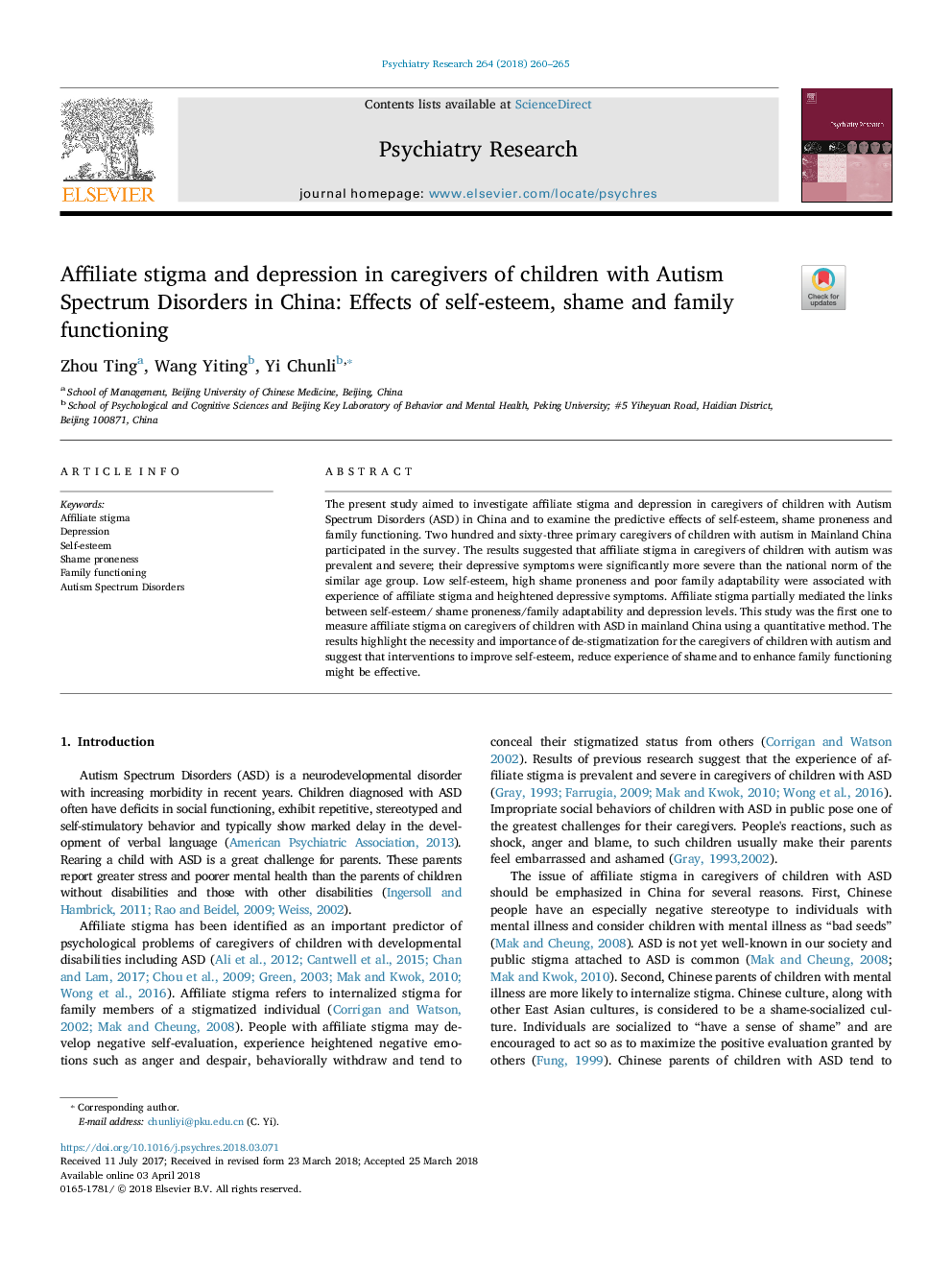ترجمه فارسی عنوان مقاله
خشونت و افسردگی مشارکتکنندگان در مراقبت از کودکان مبتلا به اختلالات اسپکتروم اوتیسم در چین: تأثیر عزت نفس، شرم و عملکرد خانواده
عنوان انگلیسی
Affiliate stigma and depression in caregivers of children with Autism Spectrum Disorders in China: Effects of self-esteem, shame and family functioning
| کد مقاله | سال انتشار | تعداد صفحات مقاله انگلیسی |
|---|---|---|
| 115345 | 2018 | 6 صفحه PDF |
منبع

Publisher : Elsevier - Science Direct (الزویر - ساینس دایرکت)
Journal : Psychiatry Research, Volume 264, June 2018, Pages 260-265
ترجمه کلمات کلیدی
مشاغل مشکوک، افسردگی، اعتماد به نفس، شرم آور، عملکرد خانواده، اختلالات طیف اوتیسم،
کلمات کلیدی انگلیسی
Affiliate stigma; Depression; Self-esteem; Shame proneness; Family functioning; Autism Spectrum Disorders;

